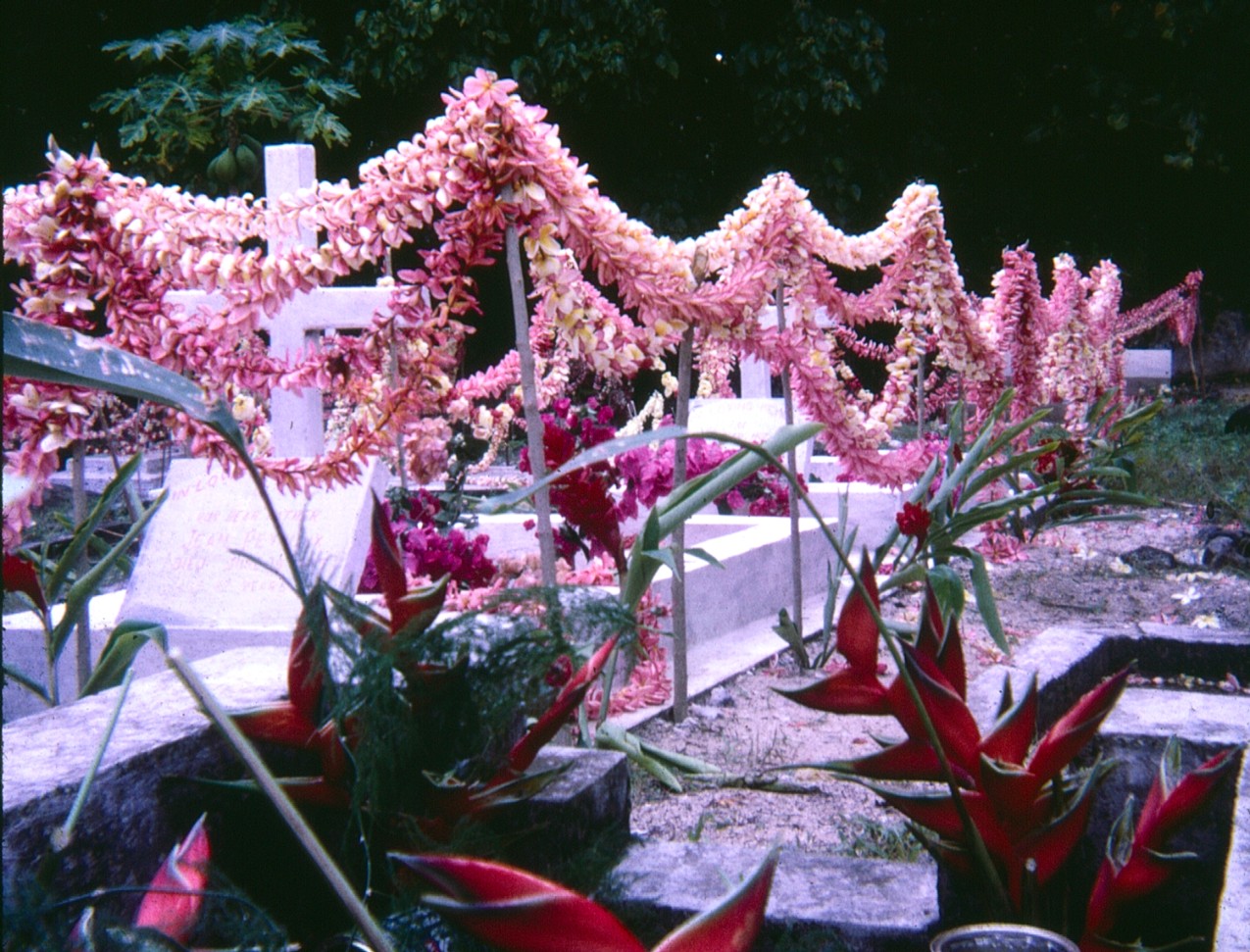A grave concern
Every year, as the first of November arrives, many in the Cook Islands pause for a solemn and beautiful occasion known as Turama. This traditional day of remembrance is a powerful cultural expression of honour and deep respect for our ancestors and loved ones who have passed. In the days leading up to Turama, a flurry of activity sweeps across our communities, with families gathering to clean, repaint, and meticulously decorate the graves of their departed. It is a cherished, inter-generational tradition, a time when our cemeteries bloom with colour and reverence.
On Rarotonga and the Pa Enua, the practice of adorning graves has only grown, seeing vibrant displays of both natural and artificial arrangements. However, within this beautiful custom, an environmental challenge is growing because of the popularity of the artificial, plastic flower decorations. While they offer convenience, these manufactured tributes contribute to an increasingly urgent issue for our fragile island environment. That is the growing problem of plastic waste.
At first glance, the convenience of an artificial plant is undeniable. They are resilient, require no maintenance, and promise an everlasting bloom, regardless of the tropical heat or rain. They need no soil, no water, and certainly no green thumb. But this convenience comes with a heavy and enduring environmental price that directly threatens our ocean and land.
These fake plant arrangements are crafted in overseas factories from synthetic materials and aggressive dyes that are not designed for easy recycling. Once exposed to the elements—the relentless sun, salt air, and strong winds—their promise of permanence fades quickly. They become brittle, discoloured, and inevitably broken.
Once a plastic arrangement is past its prime, it is discarded into the rubbish, destined for our overburdened landfill. Unlike organic material, this plastic will remain there, essentially forever, taking up precious space on our small island. Even more concerning is the sight of these arrangements left by graves, easily picked up by the wind, becoming visible litter that spreads across our backyards, roadsides, and, most critically, into our ocean.
The solution lies in returning to and celebrating the beauty of our natural environment. When we choose living plants for our tributes, we are not just decorating a grave; we are actively contributing to the health of our planet. Fresh, natural flowers and organic materials are the true representation of life, honour, and renewal. They break down completely in a short time, pouring rich nutrients back into the earth, completing a natural cycle of life. Furthermore, living plants—whether cut flowers, potted plants, or permanent plantings around the grave—offer tangible environmental benefits, working to cleanse the air we breathe. These are free, natural advantages that a plastic imitation can simply never offer.
The process of gathering and arranging fresh flowers from your own garden or a generous neighbour or friend adds a layer of personal meaning and heartfelt connection to the act of remembrance. It makes the tribute truly unique, allowing for immense creativity in textures, scents, and colours that artificial options simply cannot replicate.
Opting for plastic over natural materials is a choice we can no longer afford to make. This Turama, we encourage every family to make a conscious and meaningful decision and go 100% natural. Go with living flower arrangements, plant beautiful, organic flowers, or even place a simple potted plant by your loved one's resting place. This is not just an economical choice. It is a powerful act of stewardship that helps protect our islands for future generations. Honour our ancestors with a tribute that respects the enduring beauty and health of our shared home.
Photo: The way Turama was 60 years ago when we adopted our Constitution. All natural.

